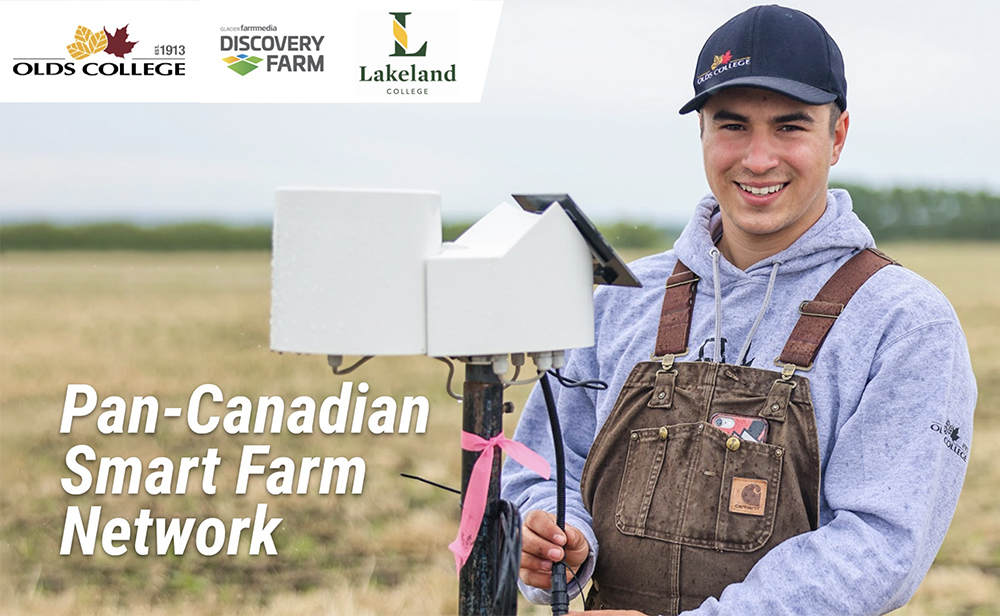The next generation of farmers in Alberta is being taught how to improve sustainability through the use of technologies such as precision agriculture and smart farming.
“All of our classes, I think maybe if it’s not a direct theme, it’s always discussed about sustainability,” said Amy Keeley-Hill, program head for crop technology at Lakeland College, which operates in Vermilion and Lloydminster. “We talk about the economics, we talk about environmental sustainability, and we talk about the social aspect of farming and that being sustainable as well right to our communities and into our own farms.”
Read Also

U.S. government investigates high input costs
The USDA and DOJ are investigating high input costs, but nothing is happening in Canada.
Lakeland College joined Olds College in Olds, Alta., to help launch the Pan-Canadian Smart Farm Network in 2021. The national initiative aims to promote the development of smart farming.
Lakeland College includes the 1,200-acre Student-Managed Farm in Vermilion. Students make the decisions about the operation with the help of faculty advisers, said Keeley-Hill.
“In terms of precision, we are fortunate enough to be powered by New Holland and have access to a new drill this year with a new cart that is going to give us the ability to do variable rate fertilization.”
Besides looking at the varieties of grain that will be planted, students plan everything from seeding to fertilization rates. “And then once they’ve got those production decisions made, then they go on to market the grain, and then look at the economic impacts and do a full financial analysis on the decisions that were made and the impact.”
Sustainability at Lakeland College involves students learning how to leave the land in “a little bit better” position each year, said Keeley-Hill. “We have these conversations about decision making,” she said.
“When they’re making the decisions, they are looking at the technology that we have available to them, and also discussing how that can make us more sustainable and impact the decisions that they’re making in terms of managing our grain farm.”
The soil is tested every year to “make sure that what we’re doing, we’re not taking more than we should from the soil — that we don’t have too high of losses, those kinds of things as well,” said Keeley-Hill.
Some farmers have become rightfully frustrated about the pressures being placed on them to be more sustainable, said Joy Agnew, associate vice-president of applied research at Olds College. Producers recognized its importance long before anyone else did because their livelihoods, and the future of their family farms, depend on it, she said.
However, the technologies available to achieve sustainability are becoming ever more powerful, said Agnew. “I would say there have been massive advancements over the last five and 10 years and maybe longer than that in the development of precision ag tools.”
The current rate of change has been “absolutely remarkable,” said Michael Crowe, then vice-president of academic and research at Lakeland College, during an interview in 2021. “The type of technology that is emerging — the satellites and the robots and the artificial intelligence and the drones — and how they’re being used, and the potential of the technology I think is different today than it’s ever been.”
An example is the Olds College Smart Farm, which is a working agricultural operation that acts as 3,600-acre living laboratory. Students, researchers and industry partners are using it to learn about and test different technologies and practices, said Agnew.
“Ten years ago, the farm at Old College was basically being operated like a commercial farm to produce feed for the livestock that were used in labs. But in 2018, there was a very intentional shift to ensure that asset and that land base were being used to accelerate innovation and accelerate knowledge sharing and training components required for the adoption of precision ag and smart technologies.”
The college recently launched a four-year undergraduate program for a new bachelor of digital agriculture degree. The inaugural class of students is expected to begin in September 2023.
It will help fill a significant skills gap when it comes to adopting new technologies, said a statement by the college.
“Graduates will be prepared to lead disruptive change in agriculture with a grounding in multidisciplinary leadership, systems and entrepreneurial thinking, digital agriculture technologies and machinery management, agronomy, and data sciences to realize the social, economic and environmental objectives of sustainability.”
The program will be held in the college’s new $14 million Werklund Agriculture and Technology Centre. The 3,000-sq.-metre facility includes three large ag tech labs, a lecture theatre and group areas for students.
Lakeland College opened a new 743-sq.-metre Agriculture Technology Centre on its Vermilion campus in 2021. It is the home of a new two-year bachelor of agriculture technology program, which was created after industry feedback indicated there is a shortage of professionals to bridge the gap between technology and agricultural production.
Students spend a year on campus learning about new technologies and how to apply them through real-life experiences at the Student-Managed Farm. Their final year involves learning on the job through industry placements with technology companies and providers.
Experts foresee a future where most tasks are fully automated as part of smart farms, with producers supervising operations remotely via tablets or smartphones. Crowe said decisions will be guided by computer analytics of data collected from things such as aerial drones.
However, farmers will remain in charge, not technology, said Agnew.
















